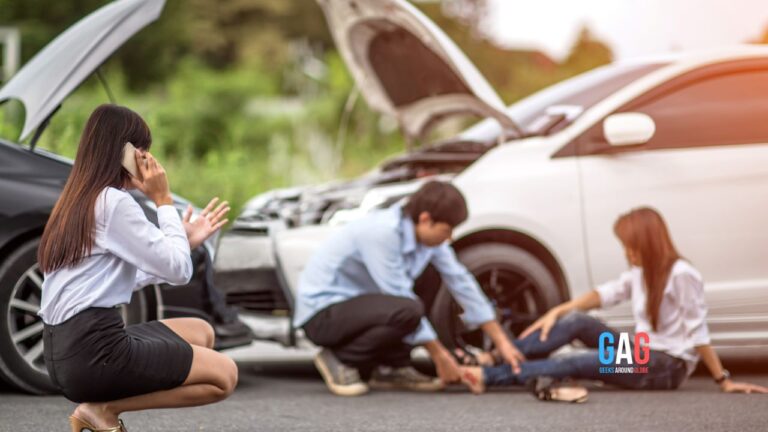In most states, one party is usually deemed to be “at fault” when an accident occurs. This party is responsible for paying for the other driver’s and passengers’ injuries (usually through its liability insurance coverage).
In some jurisdictions, medical expenses are paid for by each driver’s personal injury protection (PIP) coverage rather than the at-fault driver’s insurance, referred to as “no-fault” states.
But what are these two aspects about? In the following sections, we will learn more about no-fault and at-fault auto accident claims.
What Happens in the Event of an Automobile Accident At Your Fault?
In states with an at-fault state, both drivers’ insurance companies examine the information and determine who should be liable for the collision. The process of figuring out who is or is not responsible for an accident can be simple or extremely complex, depending on the specifics of the incident.
Who Is At Fault In an Automobile Collision?
Claims adjusters often speak with witnesses, examine police reports, and review the testimonies of individuals involved in the accident to establish who is at fault. Images of damaged vehicles or property may also be relevant, as may the traffic regulations of a particular state.
Who Pays For An At-Fault Accident?
When there is no doubt about who caused the collision or if one side confesses responsibility, the at-fault driver’s vehicle insurance will typically cover any property damage or medical expenses.
In some situations, additional damages, like pain and suffering, But frequently, it needs to be clarified what or who started the mishap. A claims adjuster investigates the accident’s cause further in these situations.
Nevertheless, there are stringent time limits for initiating legal actions regarding personal injury. Failure to adhere to these deadlines could result in forfeiting your entitlement to pursue compensation for both economic and non-economic losses according to personal injury statutes.
Hence, it becomes crucial that you refer to trusted legal sources and seek ConsumerShield’s advice to find the right attorney who can help make you whole again.
Does A Fault Accident Impact Insurance?
Unless your insurance offers an accident forgiveness function, your rate will almost always increase if you cause an accident.
Such sites give you unbiased insight into different aspects of accident law. Knowing the right insights will prevent your premium from going up. Find out more about the impact of insurance premiums on accidents and accident forgiveness.
Personal Injury Protection – What is it About?
In no-fault jurisdictions, drivers are legally required to get PIP (Personal Injury Protection) coverage, which pays for the passengers’ and each automobile involved in the collision’s medical costs. It is hoped that the courts will stay out of most of these instances.
Each accident participant will get compensation for their medical costs and lost income up to a predetermined level. Your health insurance policy may need to cover as much of the cost as your auto insurance would kick in. This will depend on the state.
To illustrate the process, imagine that you are hit by another automobile in a situation where there is no responsibility. Both your automobile and you suffer injuries. You would submit a claim to the other driver’s insurance provider for the damage to your vehicle. Afterward, you would pay for your medical expenses using your PIP coverage.
What is the Claim Process Like?
The following steps are commonly included in a claims process:
- Inform your insurance provider about the collision and provide information regarding your injuries.
- Notify the other driver’s insurance provider of the collision. While details are crucial, be cautious not to concede responsibility. The insurance company’s responsibility is to determine what transpired.
- Assemble the evidence that will support your claims of harm, including items such as medical visit expenses. A police record may also help identify the person who damaged the automobile.
- Present documentation of the accident’s specifics and your injuries. The more knowledge they possess, the better.
Lastly, the insurance company will choose whether to approve your claim, make a smaller payment offer, or reject it.
Joshua White is a passionate and experienced website article writer with a keen eye for detail and a knack for crafting engaging content. With a background in journalism and digital marketing, Joshua brings a unique perspective to his writing, ensuring that each piece resonates with readers. His dedication to delivering high-quality, informative, and captivating articles has earned him a reputation for excellence in the industry. When he’s not writing, Joshua enjoys exploring new topics and staying up-to-date with the latest trends in content creation.
Author







